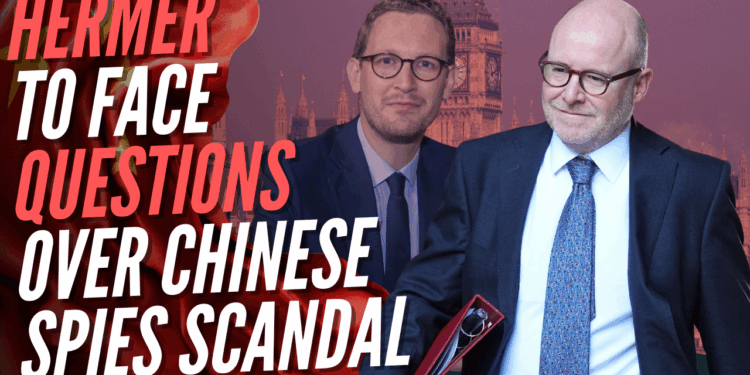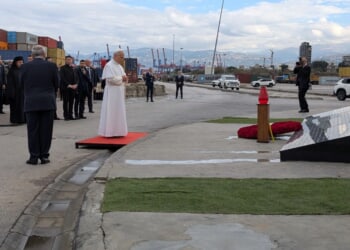Richard Hermer and Darren Jones have been summoned to a public hearing of the Joint Committee on the National Security Strategy on 28 October. Unlike Powell who will be seen in private…
Chairman Matt Western said to both of them: “The purpose of the inquiry is to examine the adequacy of processes and decision-making in relation to espionage cases, and to bring clarity to some of the questions that have arisen in recent weeks.”
Jones has been asked whether the Chinese state is a threat to UK national security. Hermer has been asked a series of questions including about his interactions with the DPP prior to the case being dropped, whether he was made aware of the CPS’ failure to be given sufficient evidence by the government, and whether he intervened. They have until 23 October to respond – Thursday…
Read both letters below:
“Dear Lord Hermer,
The Joint Committee on the National Security Strategy has launched an inquiry into ‘Espionage cases and the Official Secrets Acts’. You have been asked to attend a public hearing on Tuesday 28 October at 2.30pm.
The purpose of the inquiry is to examine the adequacy of processes and decision-making in relation to espionage cases, and to bring clarity to some of the questions that have arisen in recent weeks.
We would like to be clear that we are not seeking to apportion blame to any particular individual. We would like to acknowledge publicly the important work conducted by public servants across national security and public prosecutions. We also understand that there may quite properly be information that you may be unable to share publicly with the Committee.
In advance of the session, we would be grateful for written answers to the following questions to inform our work.
1. The Government’s website states that the Attorney General has a “statutory duty to superintend the discharge of duties by the Director of Public Prosecutions”.1 Please could you explain:
a. What “superintend” means in relation to the oversight of the Director of Public Prosecution’s engagement in national security cases and whether that differs from other cases; and
b. What specific actions were taken by the Attorney General postholders or other Law Officers to superintend the recent case?
2. In what circumstances, if any, would it be appropriate for the Attorney General or other Law Officer to intervene in the decision-making process of the Director of Public Prosecutions?”“To the Chancellor of the Duchy of Lancaster,
The Joint Committee on the National Security Strategy has launched an inquiry into ‘Espionage cases and the Official Secrets Acts’. You have been asked to attend a public hearing on Tuesday 28 October at 2.30pm.
The purpose of the inquiry is to examine the adequacy of processes and decision-making in relation to espionage cases, and to bring clarity to some of the questions that have arisen in recent weeks.
We would like to be clear that we are not seeking to apportion blame to any particular individual. We would like to acknowledge publicly the important work conducted by public servants across national security and public prosecutions. We also understand that there may, quite properly, be information that you may be unable to share publicly with the Committee.
In advance of the session, we would be grateful for written answers to the following questions to inform our work.
1. Does the Chinese state pose a direct threat to UK national security interests?
2. In the Government’s view, does this assessment fulfil the criteria required for relevant offences to be applied under:
a. the Official Secrets Act 1911; b. the Officials Secrets Act 1989;
c. the National Security Act 2023?
3. Do you believe the fundamental nature of the Government’s assessment of this matter has changed materially since 2021?”










![Keith Ellison Caught Promising to Fight State Agencies for Somali Fraudsters [WATCH]](https://www.right2024.com/wp-content/uploads/2026/01/Keith-Ellison-Caught-Promising-to-Fight-State-Agencies-for-Somali-350x250.jpg)






